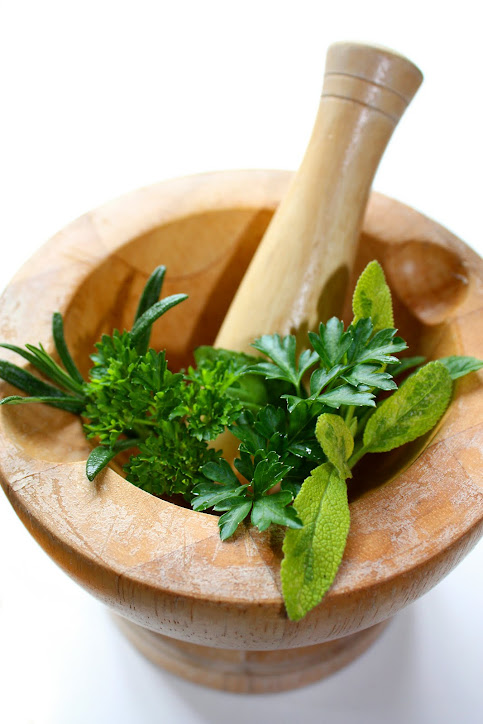The health benefits of
carrot seed essential oil
can be attributed to its properties as an antiseptic, disinfectant,
detoxifying, antioxidant, anticarcinogenic, carminative, depurative,
diuretic, emenagogue, stimulant, cytophylactic, tonic, and vermifuge
substance.
Carrot seed essential oil, as the name suggests, is extracted by
steam distillation, primarily from the dried seeds of wild carrot, but
also from the dried plant itself. Its scientific name is
Daucus Carota, and the wild carrot is common in Europe, though it is often known by another name in that region, which is “Queen Anne’s Lace”.
Apart from its components like Alpha Pinene, Beta Pinene, Gamma
Terpinene, Limonene, Camphene, Sabinene, Myrcene, Beta Bisabolene,
Carotol and Geranyl Acetate, carrot seed oil is rich in Carotene and
Vitamin-A, both of which are very beneficial for the eyes and are
effective antioxidants.
Let’s explore more of the impressive health benefits of this essential oil below.
Advertisement
Health Benefits of Carrot Seed Essential Oil
Antioxidant: Carrot seed essential oil can help you
retain your youth and look refreshingly young even as your friends start
balding and showing wrinkles on their faces. Actually, antioxidants in
this essential oil repair a lot of the damages done to your tissues by
oxidants (free radicals) and stop them from doing further harm. These
antioxidants protect your skin from wrinkles, keep your hair from
turning white, your joints from stiffening, your muscles from weakening
and your eyesight from declining. Antioxidants can work other miracles
too. They can protect you from macular degeneration, sexual weakness,
weak digestion, some forms of cancer and other problems related to
aging.
Antiseptic, Antiviral & Disinfectant: This
powerful essential oil can cure infections, protect against their
effects, and it has antiseptic properties, including its ability to
prevent tetanus. When externally applied, carrot seed oil can cure
infections on the skin and in open wounds. When ingested, it effectively
helps to cure infections of the throat, mouth, colon, stomach,
intestines and urinary system. It is extremely effective in curing
sores, gangrene, psoriasis, ulcers, rashes, carbuncles and other such
problems. It can even cure viral infections of the respiratory system,
thus benefiting in the treatment of bronchitis. It is effective in
fighting other viral infections as well, including the flu, mumps,
coughs, colds, and measles.
Detoxifier: Carrot seed oil has the ability to
detoxify the blood, tissues, muscles and internal organs like the liver
and kidneys. It can neutralize excess bile secreted from the liver and
can help cure infections in the liver in cases of jaundice. It
eliminates toxins like uric acid from the blood, tissues, muscles and
joints, thereby helping cure edema, arthritis, gout, and rheumatism.
Carcinogenic: Recent studies have shown carrot seed
oil to be beneficial in curing some forms of cancer as well, especially
those of the mouth, throat, stomach, prostrate, and kidneys. These
anticarcinogenic properties can be attributed partly to its antioxidant
properties, but also to various other medicinal properties of its
natural components.
 Carminative:
Carminative: Do you feel like you’re ballooning up
from all of the gas that you’ve accumulated in your system?? Think that
gas in there can lift you up and make you float away atany moment? If
you’ve ever felt this way, then carrot seed oil can keep your feet
firmly on the ground. It will help to expel the gases from the
intestines. You will probably feel so relaxed and light that you will
think that you can really fly!
Depurative: Carrot seed oil can purify all the organ
systems inside our body, particularly the circulatory, digestive and
the excretory systems. It removes toxins like uric acid, urea,
insecticides, pesticides and other chemicals which enter the body
through our food and water and help restore overall health.
Diuretic: Carrot Seed oil is diuretic in nature,
meaning that it increases urination. It may seem that there is no
apparent benefit of this property, but you will be surprised to see that
urination alone can keep you safe from many ailments. Each time you
urinate, some fat (almost 4% of the volume), many toxic substances like
uric acid and bile, and microbes that cause infections in the urinary
system and otherwise, are removed from the body with urine. Furthermore,
it reduces blood pressure and cleans the kidneys. It is also helpful in
clearing out renal calculi.
Emenagogue: When something is an emenagogue, it
means that the process of menstruation is improved, making it less
painful and more regular. This particularly helps when someone is
suffering from irregular or obstructed menses.
Stimulant: We all know the meaning of stimulant, and
carrot seed oil delivers in this way as well. It stimulates both
circulation and metabolic function. It also stimulates the secretion of
hormones, enzymes, gastric juices, bile and the peristaltic motion of
the intestines, thus keeping all the organic systems active and
efficient. It also stimulates brain functions and nerves, thus making
you more alert and active.
Advertisement
Tonic: Something that tones the body is a tonic, and
carrot seed oil definitely falls in that category. It tones up tissues
and muscles and increases their efficiency; it tones the liver, stomach
and the entire digestive system, regulates the flow of digestive juices
and brings the digestive system to normal order. It also tones the skin
and prevents it from hanging loose or showing signs of aging.
Cytophylactic: Carrot seed essential oil stimulates the growth of new cells and tissues.
Vermifuge: Carrot Seed oil can kill, but not you,
don’t worry. More specifically, it can eliminate the worms in your
intestines. It may help children get rid of this annoying problem which
is uncomfortable and can result in malnutrition and other harmful
conditions.
Other Benefits: It is widely used in aromatherapy
due to its mild and soothing earthy aroma which is very effective in
relieving stress and anxiety and giving a refreshing feeling. It is good
for the skin and protects it from developing wrinkles. Carrot seed oil
also relieves muscle aches, cures anorexia, enhances the production of
erythrocytes and improves eye sight.
Few Words of Caution: There are no known risks of
the essential oil, but pregnant woman should avoid it, since the
research has not been conducted to tell which attributes and stimulating
qualities are passed to the fetus.
Blending: Although there are different blends for
different purposes, carrot seed oil mixes well with Bergamot, Juniper,
Lavender, Lemon, Lime, Orange, Avocado, Cedar Wood and Geranium oils.
FROM:
http://www.organicfacts.net/health-benefits/essential-oils/carrot-seed-essential-oil.html
KEEP AN EYE OUT FOR THE RELEASE OF OUR NEW CARROT SEED CORRECTIVE SERUM!








